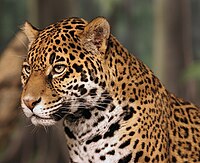Polymorphism (biology)

Polymorphism in biology refers to the coexistence of multiple forms of a trait or characteristic within a single population or species.
Let's say we have a group of insects, and some insects in this group have wings that are brown, while others have wings that are green. This is an example of polymorphism. Instead of all insects having the same brown wings, there are multiple variations within the population.
Polymorphism can occur in many different ways in biology. For example, it can refer to differences in physical appearance, such as eye color, fur pattern, or beak size. It can also refer to differences in behavior, such as mating rituals or feeding habits.
Polymorphism can be caused by a variety of factors, including genetic variation, environmental influences, and natural selection. Sometimes, polymorphism can be advantageous for individuals within the population, as it can help them adapt to changing environments or avoid predators.
In summary, polymorphism is when there are different variations of a trait or characteristic within a single population or species. This can occur for a variety of reasons and can be beneficial in helping individuals adapt to their environment.
Let's say we have a group of insects, and some insects in this group have wings that are brown, while others have wings that are green. This is an example of polymorphism. Instead of all insects having the same brown wings, there are multiple variations within the population.
Polymorphism can occur in many different ways in biology. For example, it can refer to differences in physical appearance, such as eye color, fur pattern, or beak size. It can also refer to differences in behavior, such as mating rituals or feeding habits.
Polymorphism can be caused by a variety of factors, including genetic variation, environmental influences, and natural selection. Sometimes, polymorphism can be advantageous for individuals within the population, as it can help them adapt to changing environments or avoid predators.
In summary, polymorphism is when there are different variations of a trait or characteristic within a single population or species. This can occur for a variety of reasons and can be beneficial in helping individuals adapt to their environment.
Related topics others have asked about:
